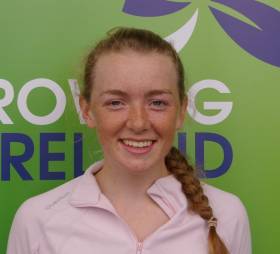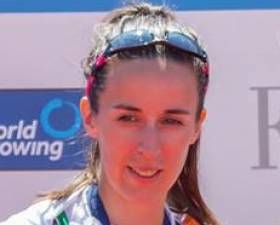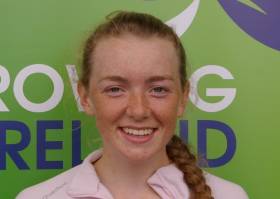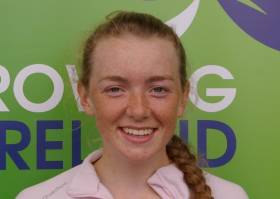Displaying items by tag: Aoife Casey
Casey and Walsh Set for B Final at European Rowing Championships
#Rowing: Ireland finished third in the repechage of the lightweight women’s double sculls and will compete in the B Final at the European Rowing Championships at Strathclyde in Scotland. Switzerland and Britain took the two A Final places which were on offer, racing clear of the rest of the crews for most of the contest. Aoife Casey and Denise Walsh led the rest, but could not close the gap.
European Rowing Championships, Strathclyde, Scotland – Day Two (Irish interest)
Women
Lightweight Double Sculls – Repechage One (First Two to A Final; rest to B Final): 1 Switzerland 7:03.89, 2 Britain 7:06.04; 3 Ireland (A Casey, D Walsh) 7:11.31.
Fourth for Denise Walsh and Aoife Casey in European Rowing Heat
#Rowing: Ireland’s lightweight double scull of Aoife Casey and Denise Walsh took fourth in their heat at the European Championships in Strathclyde, Glasgow. The race for first and a place in the A Final was won by the determined Poland crew, who led from the first few hundred metres and resisted challenges from Italy and Switzerland. Ireland took a steady fourth place and will compete in the repechage on Friday.
European Rowing Championships, Strathclyde, Scotland (Day One, Irish interest)
Men
Pair – Heat Three (First Two to A/B Semi-Finals, rest to Repechage): 1 Belarus 6:37.38, 2 Britain 6:37.76; 4 Ireland (M O’Donovan, S O’Driscoll) 6:48.94.
Women
Lightweight Double Sculls – Heat One (Winner to A Final; rest to Repechage): 1 Poland 7:08.54; 4 Ireland (A Casey, D Walsh) 7:22.02.
Hegarty and Casey Battle it Out in B Final at World Rowing
#Rowing: Ireland's junior women's double of Aoife Casey and Emily Hegarty finished sixth in the B Final of the World Rowing Chmpionships this morning. The race featured a battle of wills over most of the course between leaders France and challengers Spain. The Spaniards came through to win. Ireland and New Zealand battled to take fifth, with New Zealand taking it by just over a second.
The programme had to be postponed twice because of thunder and lightning storms. There was a strong tailwind, but the course was deemed fair and lanes were not redrawn as they had been on the Saturday.
World Rowing Championships, Rotterdam (Irish interest; Selected Results)
Women
Junior Double Sculls - B Final (Places 7 to 12): 1 Spain 7:13.72; 6 Ireland (A Casey, E Hegarty) 7:22.68.
Ireland Junior Women Set For World Rowing Repechage
#Rowing: Ireland’s Emily Hegarty and Aoife Casey finished fourth in their heat of the junior women’s double at the World Rowing Championships in Rotterdam today. Just one crew from the heat qualified directly for the A/B semi-finals, with the rest dropping into repechages. France and the United States contended for the crucial first place early on, but France could not live with the pace set by the Americans, who won. Canada took third behind France and Casey and Hegarty the next spot.
World Rowing Championships, Rotterdam (Irish interest, selected results)
Men
Junior Double Sculls - Heat Five (Four to Quarter-Finals; rest to repechage): New Zealand 6:28.44, 2 Ireland (R Byrne, D Lynch) 6:33.28, 3 Belarus 6:33.35, 4 South Africa 6:37.82.
Women
Junior Double Sculls - Heat One (Winner to A/B Semi-Final; rest to Repechage): 1 United States 7:08.57; 4 Ireland (A Casey, E Hegarty) 7:25.93.
































































